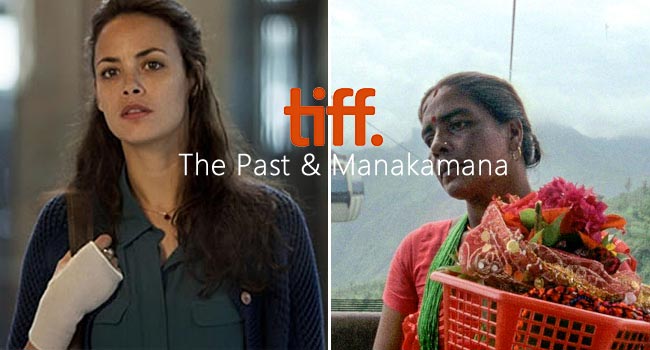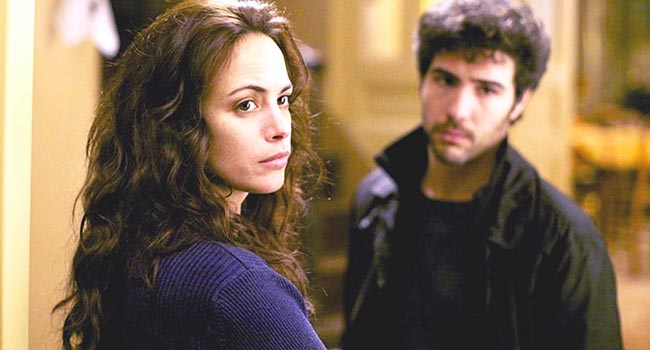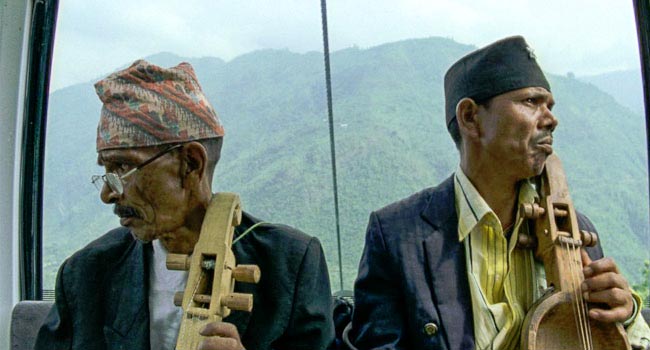TIFF 2013: The Past and Manakamana

The first thing that came flooding back into my mind the moment I arrived in Toronto for TIFF was the only thing fest-goers do more than watching movies: waiting. If you want to come to TIFF be prepared to get in line. In fact, with the addition of a “Virtual Waiting Room” in TIFF’s ticket purchasing page, you can do your waiting at home too!
After all my waiting online to get the tickets I wanted, I finally arrived to…wait in a line to pick up the tickets I bought. Once I got my tickets, I victoriously arrived to the theatre and…waited in another line for the film. But standing around and waiting is just as essential to TIFF as catching 3-4 films in a day or running around downtown to catch the next screening. There’s always someone to talk to in line as well, as people at the festival will be some of the friendliest film lovers you’ll meet. Where else can you casually chat with a stranger about Derek Cianfrance before switching topics to the Wavelengths lineup without missing a beat?
That’s exactly what I did with some people in line before sitting down to watch The Past. Asghar Farhadi’s film has already been reviewed for the site by Jansen, but as I wanted to see it badly since Cannes (and also because Blue is the Warmest Colour is one of the hardest films to get into this year) I took the chance to catch it. Anyone who has seen Farhadi’s last film A Separation will know what to expect here. It shares more than a few qualities with his previous film (Couple divorcing? Check. Use of walls and glass as barriers to communication? Check), but it’s still rich and compelling material.
The Past

I’ll keep plot details to a minimum. The Past begins with Ahmad (Ali Mosaffa) returning to Paris from Tehran so he can officially divorce his wife Marie (Berenice Bejo). They’ve been separated for several years, and he came at her request. The first of the film’s many revelations begin when Ahmad discovers that Marie is not only engaged to another man, played by A Prophet’s Tahar Rahim, but he’s living with her along with his son from another marriage. When Marie asks Ahmad to help find out why her teenage daughter Lucie (Pauline Burlet) is acting rebelliously, he begins to find out details about Marie’s new relationship that begin to tear everyone in the film apart.
Farhadi’s exploration of how his characters are trying to break free from their respective past lives and/or decisions is fascinating, and made all the better by his cast. Bejo, who won Best Actress at Cannes this year for her role, works wonders at making Marie an empathetic character (a lesser actress would have made Marie hard for the audience to like or understand). Tahar Rahim also does a great job with such a subdued character, but the real star is Mosaffa. Ahmad is the heart of the film, and Mosaffa plays the part so well that he’s missed whenever he spends extended periods off-screen.
Unfortunately, when Ahmad does seemingly vanish in the final act, The Past takes a slight dip in quality. Up to that point the focus stayed on Marie, Ahmad and Lucie, but the narrative suddenly switches over to Rahim’s character. Rahim does a fine job, and the way some of the film’s final mysteries unravel makes for a gripping watch, but his character simply isn’t as compelling as Marie and Ahmad.
Nonethless, The Past is still a very good film with an excellent screenplay (don’t be surprised if Farhadi picks up another Oscar nomination for this) and direction. As excellent as Farhadi’s writing is the film’s best moment, where Bejo and Rahim drive home after buying chandeliers, doesn’t have a single word spoken in it.
RATING: 7.5
Manakamana

Next up is Manakamana, the new project by Harvard’s Sensory Ethnography Lab. In my coverage last year, I was blown away by the SEL’s documentary Leviathan. While that film was so excellent at making the forces of nature look otherworldly, Manakamana goes in the opposite direction. Despite its patience-testing format it’s one of the most humanist films I’ve seen all year. People who stick with it will find a documentary whose portrayal of the banal makes for some truly fascinating viewing.
Read full review of Manakamana
Next up:
More Cannes catch-up, this time with Jim Jarmusch’s Only Lovers Left Alive followed by Like Father, Like Son which we said was the best film at Cannes this year. Also, I desperately try to get into The Double but don’t get my hopes up. Check back in the coming days to see if I end up catching Richard Ayoade’s latest, or some other film that was playing at the same time.
